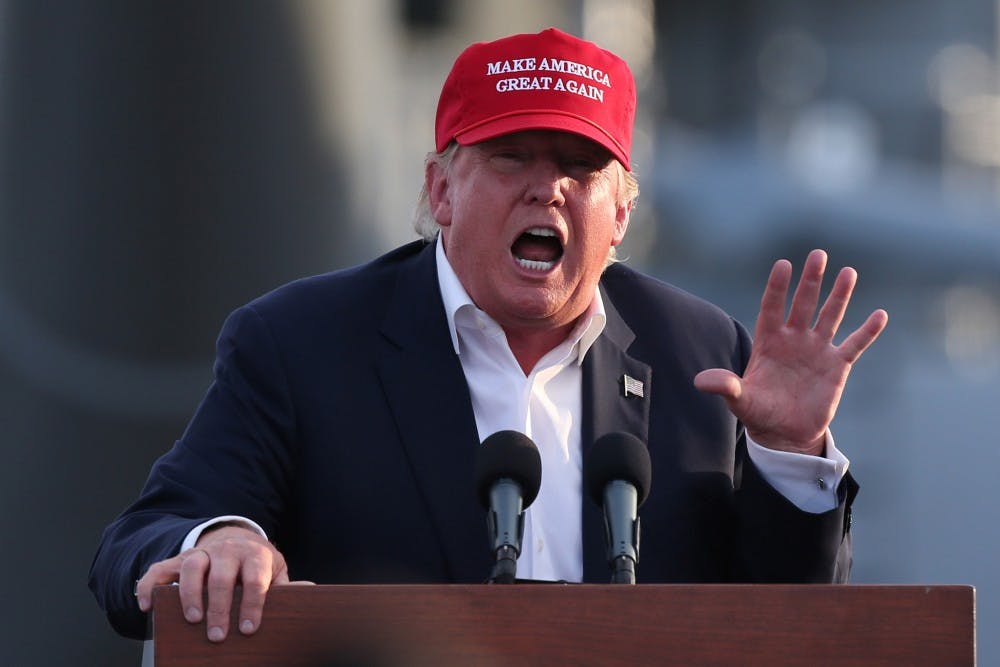Ready or not, here he comes.
It's official: Columbia will have its very first visit from Republican presidential candidate Donald Trump. Trump will be the guest speaker at a town hall meeting at 6 p.m. Wednesday at the Koger Center hosted by South Carolina Sen. Tim Scott.
For Trump, as for all Republicans running in the primaries, Columbia’s vote will be of the utmost importance to the state's primary.
This city is the capital of a state historically considered a Republican hotbed. However, recent demographic shifts within the city limits have transformed the historically red region into a Democratic stronghold, indicative of polling results from both 2008 and 2012 presidential elections.
If Trump is to lead the Republican’s presidential ticket, these facts will be of immense significance for his presidential bid.
Trump’s visit comes right in time to deflect some negative press coverage received both nationally and locally. On Monday, the candidate was the pun of social media outlets after outrageous questions from his #AskTrump Twitter hashtag left him lost for words on camera.
Last week, the billionaire candidate also felt the heat of many South Carolinians who felt snubbed by him canceling an appearance at a Greenville presidential forum at the last minute, citing scheduling conflicts with a “significant business transaction,” according to CNN.
However, there is good news for Trump — early polls have him leading with huge margins in the South Carolina Republican primaries, with a lead of at least 15 percentage points.
Trump is a major contender for the presidential elections in 2016 and, if elected, his stance on the issues facing college students become of huge importance for students at USC.
His political platform has not made it immediately clear how he intends to help out college-aged young Americans and students. Trump is in favor of cheaper tuition rates, has openly criticized the usurious interest rates of federal loans, and has called for a “restructure” of the program if elected.
Outside of these two narrow stances, not much has been outlined. This could be inspiration for more students, especially Republican students and Trump-supporting students, to attend the meeting and pressure the candidate for greater representation of young American issues.
According to Economics Professor John McDermott, who is also the advisor for College Republicans and College Libertarians, Trump is not doing a good job of representing students and their interests.
McDermott recommends, however, that students demand more representation in the political process. “Students are worried about opportunity, jobs, growth,” he said.
With four major colleges in the area, Trump’s visit to Columbia will provide the Republican front-runner an opportunity to engage with students, especially those of immigrant and minority backgrounds, which are a crucial intersection for the political candidate.
McDermott anticipates that the event, like some of his previous events, will take on the luster of a “phenomenon.”

